No one likes to lose their hair, especially women. Women tend to pride themselves on how good their hair looks, is styled and smells. When they start losing it, some tend to get worried or depressed. There are many factors that contribute to a woman’s hair loss besides their age. In this article, we will touch on several factors that affect how a woman sees herself, and what are some measures they can do to regrow their hair. Sometimes a senior woman may be inclined to just ear a wig. In fact, there are some who like to use wigs to dress up and change their looks. A good wig however can run into some money and not every woman can afford to buy one. There are also many reasons that hair loss happens in older women. Below are the common causes of hair loss in seniors over 60.
Here’s more on three common causes of hair loss in older women.
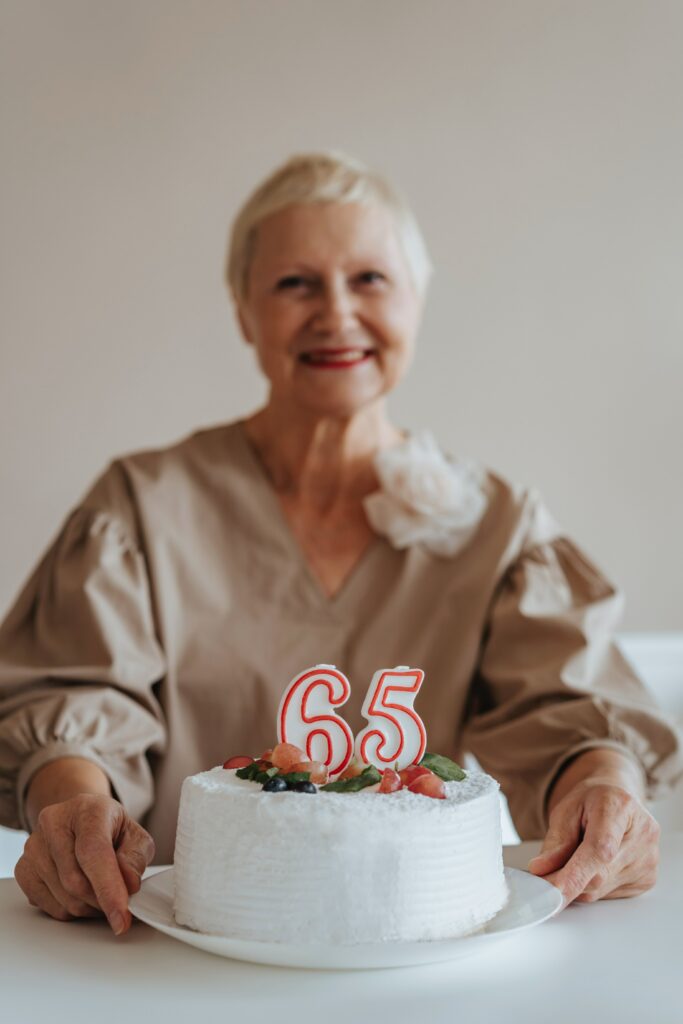
1. Aging
For most people, hair aging starts when you hit your 60s. It may begin with just a few strands at a time. Some individual hairs that are now white or gray, become thinner. It may even take longer for new strands to regrow. Hair loss from aging also can start anywhere. Sometimes sun damage can speed up hair loss aging, similar to how the pigment of your skin is affected through skin aging. Your hair can turn gray or white due to the ultraviolet(UV) rays from the sun. One way to reduce hair loss aging when outside is by wearing hats or using hair products with sunscreen. Most women who are in menopause are affected by hair loss as well. The drop in their hormonal balance can trigger the loss of hair, and making it more difficult to regrow and keep their hair.
2. Medications
One truth in regards to aging is the older we get, the higher chances of taking medications. Almost every type of prescription medication out there has side affect. Some more than we want to admit. There are some that are no as bad or damaging than other; however, certain medications may cause hair loss for seniors. If you suspect that your meds are causing you to lose hair, speak to your doctor immediately. They may be able to offer alternatives that may work better than the normal prescriptions. Sometimes adjusting dosages or switching to other types can help with the hair loss. Here is a list of common medications that could cause hair loss:
- Antidepressants: like bupropion (Wellbutrin) and selective serotonin reuptake inhibitors (SSRIs), such as fluoxetine (Prozac), paroxetine (Paxil), and sertraline (Zoloft)
- Blood thinners: like heparin, warfarin (Coumadin), and apixaban (Eliquis)
- Beta blockers: like propranolol (Inderal), metoprolol (Lopressor, Toprol), atenolol (Tenormin)
- Seizure medicine: like valproic acid (Depakote), pregabalin (Lyrica), levetiracetam (Keppra)
3. Health problems
One last cause of hair loss could be health problems. Some seniors who have specific medical issues or problems, such as hypothyroidism, anemia, or nutritional deficiencies, may develop hair loss as they age. Other possible conditions making hair loss the culprit are cancer or cancer treatments. You hair can regrow back if you go into remission, however, it may take up to a year to see any growth. If it does come back, it may be whiter or grayer in color.
How women can help regrow their hair
While leading a healthy lifestyle, women in their 60’s should notice hair loss diminishing and regrowth of hair taken place. This happens because hair is an extension of your body. Below are some healthy tips that can stimulate hair regrowth.
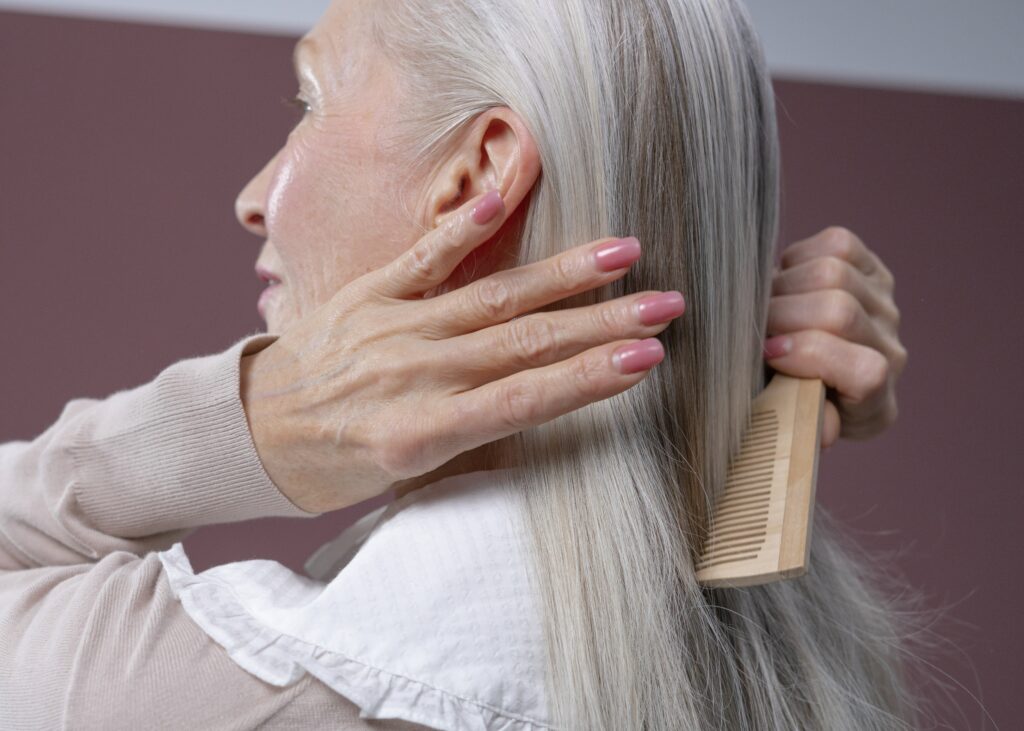
- Eat a well-balanced diet: one way women can help themselves reduce their hair loss is eating good wholesome foods that slow hair loss.
- Manage your stress in a healthy way: there are a number of techniques that help ease mental and physical stress.
- Limit hair treatments, heat styling, and the number of hair products you use: using too many hair products can damage hair and cause premature hair loss .
- Protect your hair and scalp from the sun: excess outdoor exposer can damage your hair, which can lead to hair loss.
- Get enough sleep: a good nights rest is very important to manage hair loss.
- See your healthcare provider regularly for preventative medical care: staying in contact with your primary care physician to help manage or change medication that might be increasing hair loss.
- Supplements that may help hair loss: A well balanced, vitamin supplement routine can be a great first step in controlling hair loss.
If women are looking for a FDA-approved hair loss solution their is none. However, hair loss is contributed to certain deficiencies in vitamins and minerals. A simple blood test will help you find out which vitamins and minerals your body is deficient in. Seniors do tend to be deficient in both vitamins and minerals; talking to your primary care physician can advise you on which ones your lacking, and prescribe the proper dosage.
There are risks in taking supplements, even vitamins. An example, is biotin, which can lower a person’s cardiac enzymes. This could also cause a person to miss important heart attack signs. Plus, it can skew other tests, possibly making the results worse than your health really is. Another thing to consider is how much time a senior spends outdoors. If your body has too much vitamin D, which comes from the sun, it can lead to kidney damage. Also, too much vitamin A can potentially cause your hair to fall out.
Medications that treat hair loss
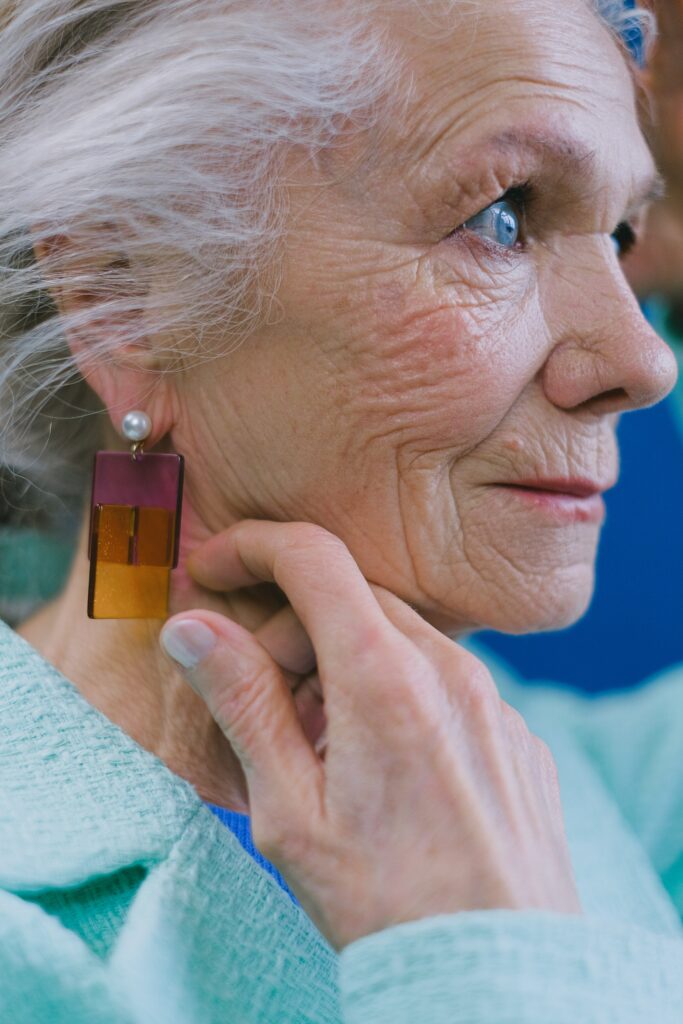
There are a over the counter medications to treat hair loss, such as Rogaine (Topical Minoxidil). This product has been out on the market for a long time. If seniors have any hereditary hair loss, dermatologists may recommend spironolactone, finasteride or minoxidil. The FDA has not approved finasteride for the treatment of hair loss in women just yet. But it could be an option. Of course there are other treatments such as cosmetic and surgical procedures. Your dermatologist could suggest. Some treatments could be considered experimental; however, they might be promising for women to consider. Other options for older women are head coverings, scalp tattoos, and wigs.
So, now we know that as a person ages, one is going to lose their hair, it is just a fact of growing old. However, the better you take care of your health, the more manageable and negligible it could be. Family support is a must in these situations. Helping loved ones deal with their hair loss is important and it can help keep the ones affected with hair loss feeling positive about the situation. Family members or caregivers could also work on hair loss prevention with their loved ones. Below are some hair loss reasons why it is so common in women who are approaching those certain ages.
Reasons Why Hair Loss happens in Women
Age-related effects on the body
Hair follicles lose the ability to rapidly create hair as quickly with age. This means, hair growth slows down as you get older. This also means as hair falls out normally, it is not replenished quickly enough to replace all of the hair that has fallen out. Menopause is a big contributing factor to hair loss due to hormonal changes, which can make it more difficult to regrow hair.
Diseases and Illnesses
Other contributing factors for seniors who have hair loss are disease and illnesses. It is recommended that older adults take precautions to make sure they stay healthy. However, this is easier said then done, especially with COVID affecting most older adults. Some diseases can affect older adults hormones and metabolism, which will affect hair growth and a senior’s health. Women with diabetes can also be affected by hair loss. Properly managing such diseases could postpone, slow down, or even stop hair loss in certain elderly adults such as senior women.
Harsh Hair Treatment
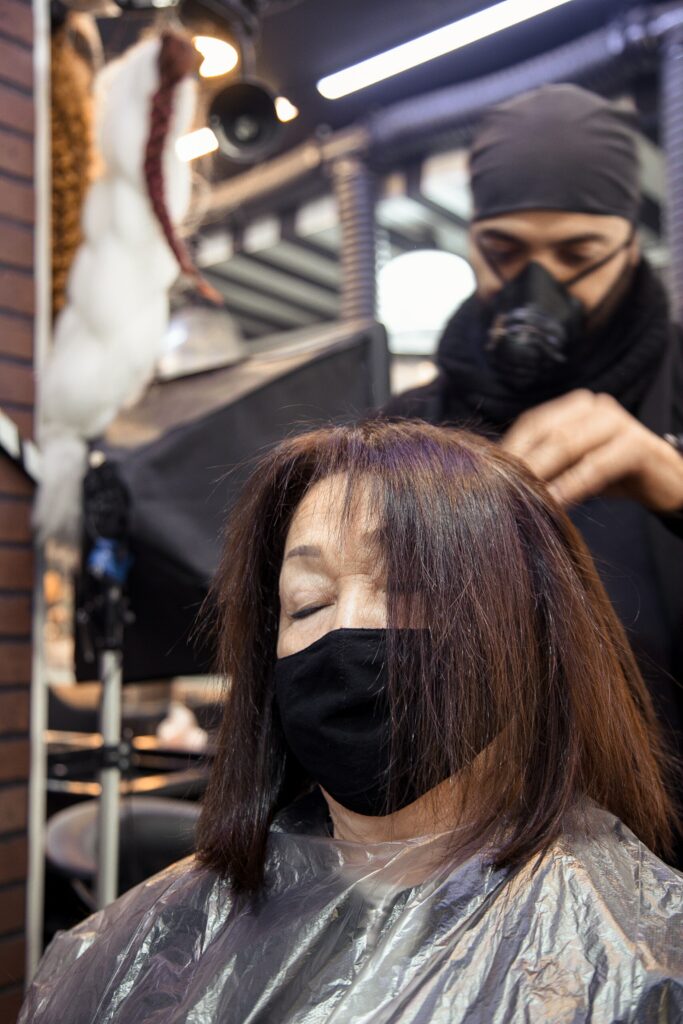
Hair treatments can be good, and some commercials even tout certain hair products and treatments as healthy. Even some health providers tend to target senior adults. The reality is that over use of any hair treatment or product can be detrimental to anyone’s overall health. That is why these products and treatments should be used sparingly and be gentle to the senior’s hair. Hair dryers should be set to cool temperatures as they tend to get very hot and can burn seniors scalp easily. Especially that elderly adults already have fragile hair. If your elderly loved one wants a hair treatment done, then take them to have it professionally done by individuals who know how to work with older adults hair.
Nutritional Deficiencies
One last reason for hair loss in elderly women could be nutritional deficiencies. This includes both vitamins and minerals. Since many seniors do not eat as much as their younger counterparts, chances are they are not receiving the right amount of nutrients in their daily diet. Not eating healthy meals are also a problem in older women. Some nutrients that senior women need for healthy hair are Vitamin A, Vitamins B6, B12, and Vitamin C. Other possible nutrients that can help are Biotin, Copper, Iron, and Zinc. If their hair lacks any of these mentioned, the hair can easily become weak and break.
How senior women can get healthier hair
Choose the right style: When it comes to finding the right style, don’t over think it. It is better to have realistic goals than forcing your hair to behave a certain way. For women with straight, fine hair, try volume over waves. For more delicate hair, work towards a cute bob. And for women with curls, aim for a more defined look that is smooth to the touch.
Use a strengthening shampoo: There are many products out there that claim to strengthen your hair, but to really get the best one, always look for one that provides a strong protein coating to get a better fuller look. Seniors should also search for a shampoo that has both vitamin B5 and biotin, to help rebuild keratin and moisturize your hair. For older women who have dandruff, try staying away from shampoos with sulfates, which tend to leave hair limp, brittle and can strip away healthy natural oils.
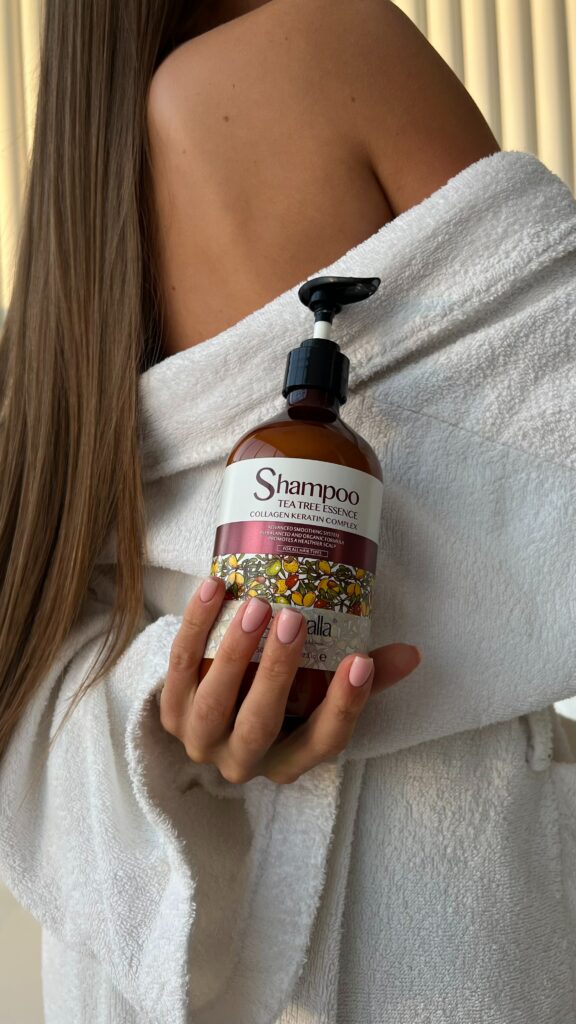
Choose a leave-in conditioner: Leave-in conditioners are becoming popular among older women these days. The reason is that they are realizing that it can actually help keep your hair from becoming brittle, and may even promote a cleaner look. Leave-in conditioners can also increase moisture-rich shine to a frizzy scalp and can be used as a great heat protectant. Some women don’t have to use a hair dryer when adding a leave-in conditioner; however, it won’t hurt your hair if you choose to anyway. Most Leave-in conditioners found at Walmart or Target average around $8 each, although some high-end or salon types can be over $20.
Trim those ends!: Some women who have short, fine hair desire to regrow their hair fast. So they stop cutting their ends for a time. However, this is not the best way to grow hair. Seniors should first consider trimming their ends; just a little bit, like a couple inches at a time. By doing so, your hair will not only grow, but stay healthier while it’s growing longer. Weather you just want to trim the bob, or fixing it up at the shoulder, trimming can help keep your hair looking good, without sacrificing the length.
Try a styling product: Keep it simple is the key here. When trying to bring more volume to your dreary hair, do not over stimulate it by adding several types of body products, plus the leave-in conditioner. It is best to only add one styling or volumizing cream product with the leave-in conditioner. Adding too much can do more damage to your already fine hair. Whether you are a person that likes the airy foam, whip, or mouse, as long as it offers a good bounce, that’s what’s important. Senior women seem to like the air-whipped creams or mouse foams the best. Try to stay away from thick creams, balms, and gels, they tend to attract more dirt and unwanted oils. Whichever kind you choose, look for a more natural blend of options for your hair.